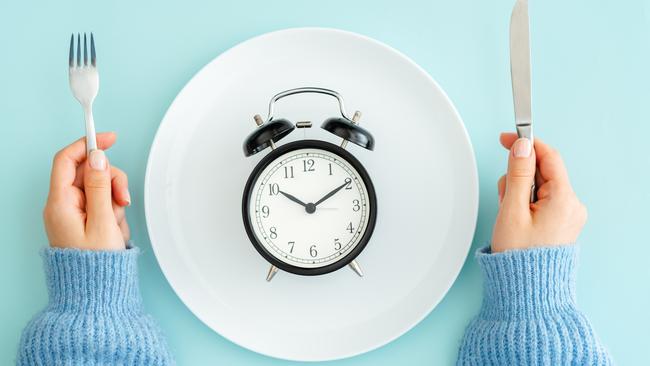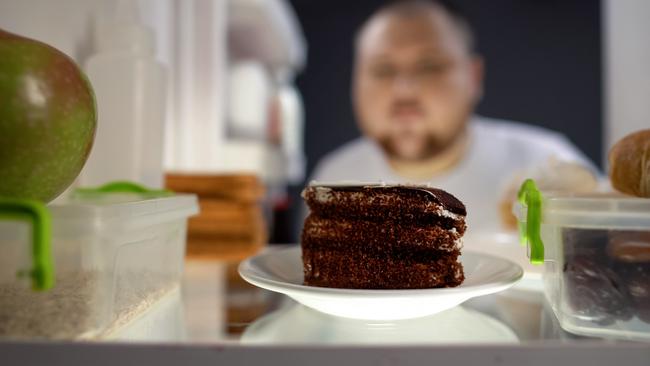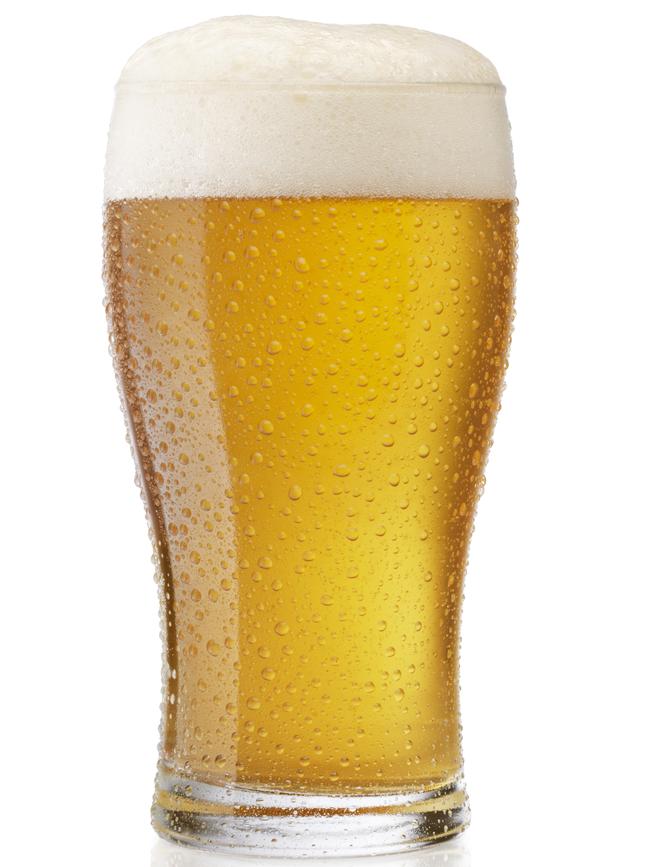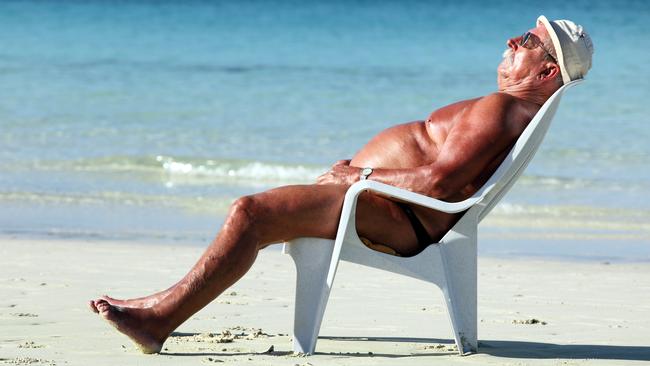Lose lockdown weight with the simple 16:8 diet
Go easy on the alcohol and eat within an eight-hour window — you won’t pile on the pounds

If you put on weight during the pandemic, you are not alone. All that banana bread and comfort eating led, according to one survey, to 48 per cent of us piling on the pounds — the the “Corona-stone”. It does not have to be like that this time round.
This is definitely not the moment for crash diets or cutting out cheering carbohydrates altogether. Follow this diet and exercise guide to boost your health and get into shape — you could even lose 3kg in 25 days. It’s effective, realistic — and, after all, it’s only for a month.
How to get started
There’s one method of losing weight that is perfectly suited to the present. What scientists call “time-restricted eating” has become better known as the 16:8 diet and involves consuming all of your daily calories within an eight-hour window, leaving 16 hours without food. And there’s evidence that it works.
During this mini daily fast, the body is forced to work harder to burn calories, giving metabolism and the energy centre of the body’s cells a chance to reset. In a review article published in The New England Journal of Medicine last year Dr Mark Mattson, a neuroscientist at Johns Hopkins University School of Medicine, suggested that the approach can improve health and reduce weight. It works partly because you consume fewer calories when you have only a narrow window in which to eat. But researchers reckon that even such brief periods of fasting trigger a biological response to food scarcity called metabolic switching, meaning that once cells have used up their stores of sugar they begin burning body fat instead.
In a small study at the University of Illinois 23 obese people switched to eating only between the hours of 10am and 6pm. During that eight-hour window they could consume any type or quantity of food, but had to commit to consuming only water or calorie-free drinks for the remainder of the day and night. Compared with a control group that had followed a different type of fasting approach, the 16:8 dieters consumed 350 fewer calories a day than even the other fasters and had lost 3 per cent more body weight after 12 weeks.

Don’t eat after 7pm
It’s important to get the timing of your meals right. Studies show that the 16:8 plan is more effective when your eight-hour eating window starts earlier in the day, when the body is best at metabolising food. Go for the 10am to 6pm or 11am to 7pm slot, rather than one that starts after midday. Otherwise you end up having dinner later in the evening, when metabolism is sluggish. The good news is that the calorie distribution within the window doesn’t matter — you can have a big breakfast, or a big dinner, whichever is your preference.
Of course, it’s not an excuse to binge-eat cheese and Pringles within your eight-hour window. Mattson advises 16:8 dieters to “eat healthy foods, including whole grains, healthy fats and protein, limit saturated fats and avoid sugar and refined carbohydrates”. However, you do have a lot of flexibility.
The leading fitness expert Harry Jameson (who has created the accompanying exercise programme on pages 4-5) says he is a big fan of the approach. “I’m an advocate of it because it requires planning, but doesn’t ask you to starve yourself,” he says. “There’s more leeway with the 16:8 diet than other plans. If you like eating bread, pasta and rice, then you can get away with it by eating them within your window.”
He says that the present social restrictions provide an ideal opportunity to experiment with your eating window.
Drop 500 calories with little effort
Most studies show the time-restricted approach results in a 20 per cent daily calorie deficit, meaning that if you normally eat 2500 calories a day, this would probably fall by 500 calories even without a conscious effort to eat more healthily or add more exercise. The result is that you would lose 500g-1kg a week, or half a stone in the next 25 days. It’s also less arduous than other diets, partly because for much of the fasting period you’ll be asleep.
“One of the benefits of the 16:8 diet may be that it’s easier for people to maintain,” says Krista Varady, an associate professor of kinesiology and nutrition and the lead author of the Illinois paper. “Fewer participants dropped out of this study when compared to studies on other fasting diets.”
Mattson suggests starting with just a few days a week of the 16:8 approach and not “going cold turkey”. Sudden restriction can leave you “feeling hungry and irritable”, although that usually passes quickly as the body and brain become accustomed to the new habit.
Watch your alcohol
Many of us are probably drinking too much, and with the best will in the world, it would take a strong person to cut out alcohol in times like this.

Yet we should limit our intake. And if you are following the 16:8 approach, you need to consume any alcohol within your eating window — along with any other calorific drinks (water, black tea and coffee are fine).
“Alcohol leads to a loss of dietary self-control, and one drink can make us think food tastes better, so we want to eat more — so it’s very bad news if you are trying to lose weight,” says Dr Duane Mellor, a dietician and senior teaching fellow at Aston University medical school. “It is also highly calorific.”
According to the British charity Drinkaware, alcohol accounts for 10 per cent of the daily sugar intake among 29 to 64-year-olds.
You should introduce regular days off, which will slash your calorie intake significantly. Stick to small servings. A standard 175ml glass of wine contains about 160 calories, while a large glass (250ml) contains 225 calories.
It’s all too easy to fall into the habit of opening a bottle of wine early on in the evening. Resist because it could mean you end up eating more. When people were asked to drink red wine before and during a meal of garlic bread and pizza they consumed 25 per cent more calories from the food than a control group who had no wine.
“The effects of wine on appetite are immediate and stimulate food intake early in the meal,” the researchers at Glasgow Caledonian University said.

Eat oily fish, eggs, cheese, yoghurt
Make sure you eat plenty of foods containing vitamin A, including oily fish, yoghurt and eggs, throughout the next 25 days because a study from Vienna is the latest to show that the vitamin supports weight loss. Researchers have previously shown that a deficiency of vitamin A is linked to weight gain, but a new trial has suggested that the effects of the vitamin might be boosted as the weather gets colder.
According to the researchers writing in the journal Molecular Metabolism, vitamin A helps to convert “bad” white adipose tissue (the blobby fat we are trying to get rid of from our stomachs and thighs) into “good” brown fat that is a potent calorie-burner, a process known as “browning”. When human volunteers and mice were subjected to cold temperatures, the level of vitamin A in their blood was redistributed from the liver to fatty tissue, where it led to browning and stimulated a higher rate of fat burning.

Get at least six hours’ sleep and don’t work late
If you’re serious about not piling on the pounds, don’t be tempted to work late at home or sit up late bingeing on box sets. A single night of four hours’ sleep has been shown in a trial to impair the body’s ability to process glucose, which, says the author Emma Sweeney, a lecturer in exercise and health science at Nottingham Trent University, means excess glucose could be converted to fatty acids and stored as body fat. Some researchers have shown that two weeks of getting too little sleep (about 5½ hours) at the same time as trying to lose weight results in people losing less fat — and more lean tissue including muscle — when compared with dieters who get 8½ a night.
“It is known that hunger hormones increase and satiety hormones decrease when we are tired,” says Dr Nicola Barclay, a lecturer in sleep medicine at the Sleep and Circadian Neuroscience Institute, University of Oxford, and an adviser to the medical sleep aid company Mammoth. “We also crave more sugar and carbs due to the altered regulation of these hormones, which is why it is linked to weight gain.” It is key, she says, to maintain a regular routine and not get up or go to bed later than usual.
Eat 30g of fibre a day
It should go without saying, but make sure you eat plenty of fruit, vegetables and pulses over the next month. “Fibre plays a very important role in making us feel fuller and improving our gut health, both of which have an impact on weight,” says Helen Bond, a dietician.
If we were to increase our intake via a greater consumption of fibre-rich foods such as fruit, wholegrains, pulses, nuts, seeds and vegetables, it would help us to shed pounds in the long run. A study team from the University of Texas reporting in The Journal of Nutrition looked at weight loss in a group of dieting overweight people.
Results showed fibre intake to be the strongest predictor of weight loss, with volunteers who ate an average increase of 4g of fibre more each day than when the study started losing an extra 1.5kg of weight over six months. What’s more, the higher-fibre eaters were much more likely to stick to their diets for the study’s duration.
The Times







To join the conversation, please log in. Don't have an account? Register
Join the conversation, you are commenting as Logout